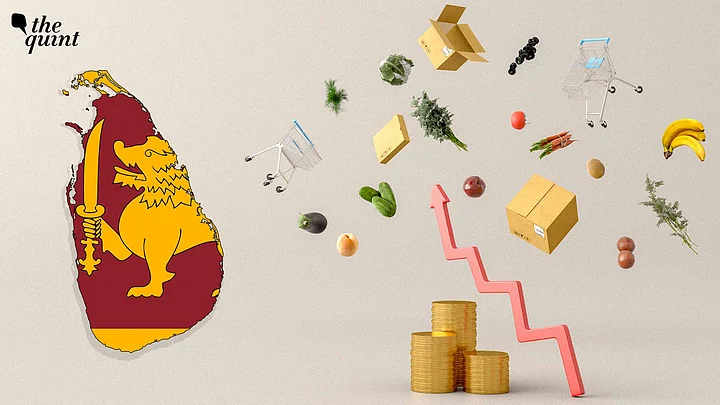Sri Lanka, still witnessing its worst economic crisis since the 1940s, declared on Tuesday,12 April that it would default on its $51 billion external debt, awaiting a bailout from the International Monetary Fund, AFP reported.
Sri Lanka's central bank governor P Nandalal Weerasinghe told reporters that the country's financial crisis "has come to a point that making debt payments are challenging and impossible. The best action that can be taken is to restructure debt and avoid a hard default."
A statement released by the Ministry of Finance, titled "Interim Policy Regarding the Servicing of Sri Lanka's External Public Debt", said that "recent events [however] including the effects of the Covid-19 pandemic and the fallout from the hostilities in Ukraine, have so eroded Sri Lanka's fiscal position that continued normal servicing of external public debt obligations has become impossible."
"Confronted by this hard reality, the Government has approached the IMF for assistance in designing an economic recovery program and for emergency financial assistance," the statement added.
The previous governor of the central bank, Ajith Nivard Cabraal, had told reporters in January that the "IMF is not a magic wand."
The Economic Crisis
Sri Lanka is going through an economic meltdown of a scale unseen since the country's financial crisis of 1948. Prices of essential commodities like rice, milk, and oil have skyrocketed.
The main cause is the shortage of foreign currency, which has led to a huge reduction in imports of essential items like petroleum, food, paper, sugar, lentils, medicines, and transportation equipment.
The roots of the shortage lie in the recent failure of the tourism industry, the failure to procure enough FDI, and the government’s refusal to take a loan from the International Monetary Fund (IMF).
Tourism contributes to around 10 percent of Sri Lanka's GDP. It was already suffering after the 2019 blasts in Colombo. COVID-19 made it worse.
Those sectors that earned foreign currency were devastated, thereby reducing its inflow.
Additionally, government data says FDI into Sri Lanka has decreased to $548 million in 2020, compared to $793 million in 2019 and $1.6 billion in 2018.
India has extended a $1 billion credit facility to Sri Lanka, which will ensure that the government can procure food, medicines, and other essential commodities.
China has also provided a $1 billion loan and extended a $1.5 billion credit line to Sri Lanka.
What Does External Debt Default Mean?
External debt is that proportion of a country's debt which is borrowed from foreign lenders like commercial banks, governments of other countries, or even international financial institutions.
Failure to repay the external debt results in what is known as a sovereign (external debt) default.
Click here to understand the crisis in detail.
(This is a developing story. Will be updated with more details.)
(At The Quint, we question everything. Play an active role in shaping our journalism by becoming a member today.)
